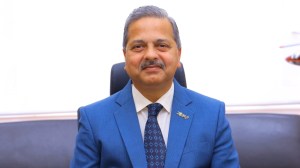Boys of Baghdad College vie now for Iraq prime ministership
The priests have long since departed, but the elite Jesuit high school called Baghdad College still looms over the swirling world of Iraqi p...

The priests have long since departed, but the elite Jesuit high school called Baghdad College still looms over the swirling world of Iraqi politics.
The three Iraqi political leaders considered most likely to end up as prime minister after nationwide elections this week—Ayad Allawi, Ahmad Chalabi and Adel Abdul Mahdi—were schoolmates at the all-boys English-language school in the late 1950’s.
The three are now flag bearers for three very different visions of Iraq’s future: Allawi for a secular state, Mahdi for an Islamic-style democracy, and Chalabi for a programme that would purge Iraqi society of those associated with Hussein’s rule.
But what unites the three former schoolmates could prove more important than what sets them apart. The ties that go back to childhood and to the musty corridors of Baghdad College suggest that the hard clashes that lie ahead in this polarised land may yet be softened by three men who grew up together.
“Ahmad was a year ahead of me, and we used to go swimming together,” Allawi said. “Adel and I were friends, our families knew each other. Politically we are very different now,” he said. “But those were nice days.”
Perhaps the most reliable guide to the pathways of the new Iraqi politics is the Baghdad College yearbooks from the 1950’s and early 1960’s, where old black and white photographs show smartly dressed boys, their faces aglow with the anticipation of success. There, for example, is Laith Kubba, now a top aide to Prime Minister Ibrahim al-Jafaari. And there is Kanan Makiya, the author of a landmark book about the terror of Saddam Hussein’s rule and the founder of the Iraq Memory Foundation, which is dedicated to memorialising its victims.
For men now in their 60’s, the memories are fondly held. During separate interviews last year, Chalabi and Mahdi volunteered that they had gone to high school together, and each man walked over to his bookcase to pull down his yearbook.
“Adel was always bullying us,” Chalabi joked about the soft-spoken Mahdi, with whom he remains close. “Ayad was taciturn.
When you have known each other that long,” he said, “it takes the edge off the tension.” —NYT






- 01
- 02
- 03
- 04
- 05

























